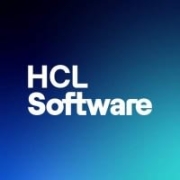Corporate Portals, or Enterprise Information Portals, offer companies a centralized gateway for accessing structured and unstructured information. They serve as a collaborative platform for employees and integrate various applications under one unified interface.
{download_url_and_top_solutions}
These solutions provide a seamless user experience by bringing together resources from different systems and presenting them in a user-friendly manner. They help improve organizational efficiency and decision-making by enabling easy access to business-critical information.
Which features make these solutions stand out?Organizations in industries like finance, healthcare, and manufacturing implement these solutions to streamline operations and improve compliance. They support large-scale information management and feature integration with existing IT infrastructure.
Corporate Portals are essential for enhancing enterprise collaboration, providing a unified access point for business operations, and improving overall organizational efficiency.




















Portals and websites each have characteristics that make them distinctive from one another.
1. The first major difference between a portal and a website is where they are hosted. Portals are hosted on secure servers that are only accessible by people who are in possession of a specific set of authorized credentials. This means that someone who is merely surfing the internet cannot accidentally gain access to a corporate portal. If you are a member of the public and lack the proper level of authorization and the right credentials, then you will not have the ability to view or access a portal. The same cannot be said of websites, which are hosted on the internet. They can be easily found and viewed by anyone who stumbles upon them or who searches for the uniform resource locator (URL) that is connected to that website.
2. Another major difference between portals and websites is the actions that one takes to access them. Usually, a website will not require any specific actions to be undertaken in order to gain access to its contents. However, as has been noted, unique credentials are usually going to be required before a given user can access the contents of a portal. The user will be prompted to supply their credentials when they attempt to enter the portal.
3. The very purposes of portals and websites could not be more different. Portals are meant to secure data and make it so that only specific users can access the information stored within. They take active steps to make sure that only specific users can use them. However, websites usually work in exactly the opposite way. They have no interest in limiting access to their contents. Websites usually seek to attract as many users and as much traffic as they can over the smallest periods of time possible. Companies build websites with the intention of drawing new users into their spheres of influence. Websites are usually meant either to help a brand expand its reach or to provide previously unknown information to the public.
4. Additionally, the nature of the data that is contained within portals and websites can differ rather drastically. The content that portals contain are always shifting and changing to reflect the changes taking place within the corporation or organization. Portals will always contain this kind of changing content that is known as dynamic content. While websites can contain dynamic content, it is not a given that they will have content of this kind. It is equally possible that the content of a given website will be unchanging. This static content will not change when a new user enters the website.
Enterprise portal software enables enterprises to integrate process information using a web-based interface. It also allows authorized personnel to access web services; this includes portal networks that span the entire enterprise.
EPS packages may include:
• Content management systems
• Document management systems,
• Customer relations management
• Business intelligence
• Collaboration software
• Wiki
• Company blogs
Some of the benefits that corporations can reap by using corporate portal software include:
In order for corporate portal software to be considered effective, there are certain features that it should possess: